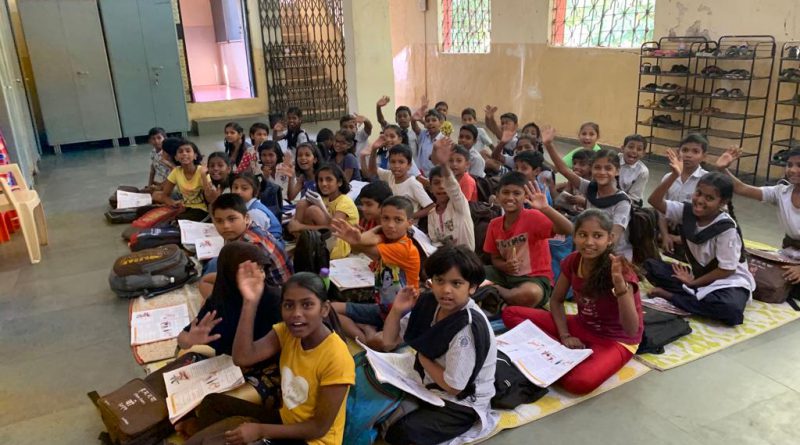From Classroom to Success: How Education Shapes Lives
Education in India is a vast and diverse landscape, influenced by a rich cultural heritage and a rapidly evolving society. With a population of over 1.4 billion people, India’s education system faces unique challenges and opportunities despite significant progress in recent decades. Access to quality education remains a concern, particularly in rural and economically disadvantaged areas. Infrastructure gaps, inadequate teacher training, and outdated pedagogical approaches also pose challenges to the system.
Education not only imparts knowledge but also instils values, fosters critical thinking, and equips individuals with the skills necessary for personal and societal growth. Supporting the cause of education and donating effectively becomes crucial to have a profound impact on individuals and communities.
Let’s explore these essential factors that highlight the significance of education:
- Empowering individuals through learning can break the cycle of poverty
- Crucial skills like literacy, numeracy, problem-solving, and critical thinking are obtained
- Education helps in discovering interests, talents, and passions, allowing people to pursue their aspirations that align with their strengths
- Individuals are equipped with expertise essential for workforce contribution, innovation, and economic growth
- Tolerance, empathy, and understanding among diverse backgrounds are fostered, promoting a more inclusive and cohesive society
- Education is closely linked to better health outcomes, equips individuals with knowledge about hygiene, nutrition, disease prevention, and healthy lifestyles
- Promoting gender equality is greatly influenced, playing a pivotal role in diminishing gender disparities and empowering women and girls
NGOs play a crucial role in bridging this gap by providing access to education and promoting literacy. By investing in education, we can help create a more just and equitable world where everyone has access to quality education and the opportunity to succeed.
Here are some of the diverse ways NGOs support education in India, contributing towards improving access, quality, and equity in education:
- Early Childhood Education: NGOs focus on early childhood education, providing preschool and kindergarten programs to ensure a strong foundation for children before they enter formal schooling. They frequently develop learning materials in languages spoken locally, making it easier for students to understand as they move through different grade levels.
- Technology Integration: NGOs introduce and integrate technology into education, providing access to computers, tablets, and online learning resources.
- Adult Literacy Programs: NGOs also engage in adult education and literacy programs, empowering adults to acquire basic reading, writing, and numeracy skills. The aim is to establish night schools and evening learning centres with the objective of providing the out of school students, young adolescents and the SSC failed students an opportunity to complete their basic education through board or open school exams which help them to gain a sense of achievement in their lives.
- Community Engagement: NGOs involve parents, local communities, and other stakeholders in the education process, fostering a sense of ownership and collective responsibility for children’s education.
- Special Needs Education: NGOs support children with disabilities by creating inclusive learning environments and offering specialized education and therapies.
- Disaster Relief and Education Continuity: In the aftermath of natural disasters or emergencies, NGOs help in restoring education by setting up temporary learning centres and providing educational materials.
- Providing Infrastructure and Facilities: NGOs often work to improve the physical infrastructure of schools, such as building classrooms, libraries, laboratories, and sanitation facilities. They also help in renovating and upgrading existing infrastructure to create a better learning environment.
- Scholarships and Financial Aid: Many NGOs offer scholarships and financial assistance to underprivileged students, helping them access quality education. These scholarships may cover tuition fees, books, uniforms, and other educational expenses.
- Teacher Training and Professional Development: NGOs organize training programs for teachers to enhance their teaching skills, methodologies, and subject knowledge. This helps improve the overall quality of education imparted in schools.
- Health and Nutrition Programs: NGOs recognize the importance of health and nutrition in facilitating effective learning. They often provide health check-ups, immunization, and nutritional support to students.
- Remote and Rural Education: NGOs focus on providing education in remote and rural areas where formal education infrastructure is lacking. This includes setting up temporary schools, mobile libraries, and digital learning centres. Many NGOs specifically target girls’ education, working to overcome cultural and social barriers that often limit girls’ access to education.
- Vocational Training and Skill Development: NGOs offer vocational training and skill development programs to equip students with practical skills that can lead to employment opportunities, especially for those who may not pursue higher education.
Below are a few heart-warming stories of change that evoke strong emotions and motivate us to stand behind and back these NGOs:
- There are 6 members in Rohini’s family. Her mother is a housewife and her father is unemployed and an alcoholic. Her family faced huge financial crisis during the lockdown affecting her studies as well. She got acquainted with the NGO whilst at school. They supported her during her schooling for nutrition, school fees and stationery cost and that helped Rohini to secure 1ˢᵗ position in her school. The Career Cell department assisted her in finding job-related courses as well as higher education opportunities. She enrolled in a Dental Assisting course as well as a PPCA (Professional Program of Computer Application) class. She is currently employed as a dental assistant at Smile So Good Dental Clinic and is pursuing her Diploma in Medical Laboratory.
- Raj lives with his mother and brother. His father was a driver and died in an accident when Raj was in Std. VIII. His brother is mentally ill. After his father’s death, the family was devastated and financially broke. That is when Raj’s mother started a grocery store which brought a monthly income of Rs. 5000. Raj saw and used a computer for the first time in his life in Std. IV at the Computer Class being run by the NGO. He gradually learned Word, Excel, PowerPoint, educational software and computer hardware. He can now do editing with Corel and Photoshop software. Says Raj, “I am able to obtain more and more information for my projects from the Internet. Due to computers, I like the subjects of Mathematics and Science more now. Looking at the speeding growth and changes in the area of Information Technology, he aims to become a computer engineer when he grows up.
- Anushka’s family used to reside in the slum community near a metro station but due to the metro train construction, they were relocated to new locality by the Slum Board. Anushka’s mother works as a housemaid while her father is employed as an electrician in the railways. Anushka’s journey with the NGO started when she was enrolled in Std. 1 along with several other children. Despite facing various challenges, including financial setbacks, she remained dedicated to her studies, consistently scoring well year after year. She is currently pursuing her GNM (General Nursing and Midwifery) course with the promise of a placement at a leading hospital upon successful completion of the course in 3 years. She stands out as a role model for many young children around her in the community.
Continued investment in infrastructure, teacher training, and inclusive policies will be pivotal to ensure equitable access and quality education for all.
Ensure your donations have a direct and meaningful impact within the community!
Here’s a curated list of vetted NGOs working towards education that cover a wide range of initiatives, including night schools, scholarship programs, skill development and vocational training opportunities.
Visit www.HelpYourNGO.com in case you’re looking for NGOs to support working towards your favourite cause.




